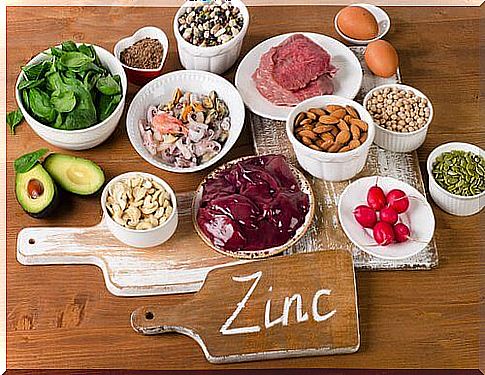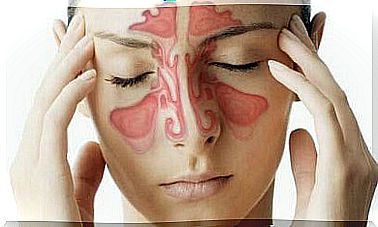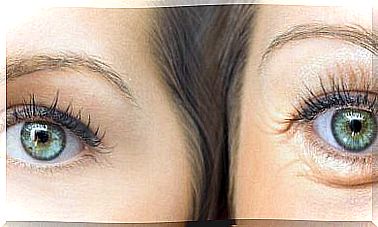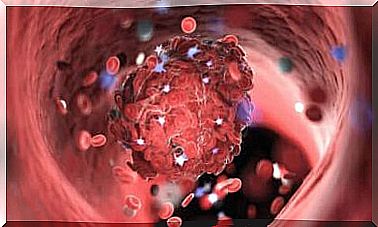Nutrient Deficiencies That Cause Depression

Various nutrient deficiencies can affect mood . Depression is a mood disorder. It includes a constant feeling of sadness and irritability, as well as a general lack of interest in everyday things and life in general.
This is a fairly common thing, especially in modern countries. Today, depression is even considered a common disease.
Several years ago, however, it was thought to be caused by emotional factors.
Over time, it has been found that depression is caused by changes in brain chemistry. Hereditary factors, environmental influences, and hormonal changes can all cause the development of that disorder.
In addition, eating habits have a clear link to the development of depression. Namely, a deficient intake of some nutrients increases the likelihood of this problem.
That is why it is extremely important to make your diet better. Eating foods that help avoid and alleviate this common disorder should be increased.
So, next, we want to talk about six such nutrient deficiencies that are associated with the development of depression.
Keep reading so you can protect yourself from depression more effectively, avoid nutrient deficiencies, and thus contribute significantly to your well-being!
The following nutrient deficiencies affect mood:
1. Omega-3 fatty acids

Foods high in Omega-3 fatty acids offer numerous benefits to improve health, and this range also includes emotional well-being.
The intake of these fatty acids is key to the development and proper functioning of the central nervous system, as they regulate inflammation and control nervous system activity.
In addition, omega-3 fatty acids play an important role in ensuring a balanced distribution of chemicals in the brain and reduce the likelihood of premature aging.
In addition, ensuring high intake of Omega-3 fatty acids is recommended as part of the treatment of depression in order to increase serotonin production while minimizing excessive cortisol production.
You get these fatty acids by eating the following foods:
- greasy fish
- seeds and nuts
- legumes and beans
- egg
- vegetables
2. Vitamin D.
Inadequate vitamin D intake not only increases the risk of bone and joint problems, it can also cause depressive episodes and dementia. Nutrient deficiencies in vitamin D are common, especially in the Nordic countries.
This vitamin is key to serotonin – it is a mediator with a connection to human mood and happiness.
Good absorption of vitamin D reduces the risk of experiencing emotional imbalance. In addition, it has a positive effect on resistance.
The most common form of absorption is through the sun’s rays. Vitamin D is also present in the following foods:
- blue fish
- cod oil
- flakes and fortified soy products
- egg
- mushrooms
3. Zinc

Zinc is also a micronutrient that plays a role in controlling human emotions. It stimulates certain neurological functions and nervous system activity.
In addition, when obtained in the right amounts, zinc increases the production of mediators that provide well-being. At the same time, it is associated with more than 250 independent biochemical pathways that are linked to the function of the body’s major organs.
The foods that correct these nutrient deficiencies are as follows:
- Red meat
- egg
- seafood
- legumes
- nuts
- seed
- whole grains
4. Selenium
This nutrient is a vital factor in brain function and mood balance.
Selenium plays an essential role in thyroid function. At the same time, it plays a very important role in the realization of the well-being of the mind.
The antioxidants it contains and its restorative effects are key to preventing and treating depression.
Selenium sources are the following products:
- lean meats
- blue fish (sardines, salmon, etc.)
- beans and peas
- egg
- seafood
5. Magnesium

Unfortunately, magnesium is one of the most difficult minerals to be absorbed by the body.
However, it plays a vital role in the treatment of depression as it increases the production of serotonin and dopamine. In addition, it reduces cortisol production.
You can get magnesium from the following products:
- seaweed
- almond
- avocado
- banana
- beans
- pumpkin seeds
- whole grains
- bran
- leafy green vegetables
Iron deficiency is one of the main causes of anemia, mental fatigue and depression.
It is important to keep in mind that iron is a vital factor in human cognitive and developmental function, as well as sensory and motor function.
Inadequate iron intake causes too few red blood cells. This affects cellular oxidation and causes emotional imbalance, exhaustion, and mental confusion.
To increase your iron intake, enjoy more of the following products:
- Red meat
- beetroot
- blue fish
- oats
- spinach and green vegetables
- pomegranate
- egg
- beans
- peanut butter
In general, the products we mention in this article can play a key role in treating depression and low mood.
However, it is important to analyze other factors to determine what may be causing the depression and what other corrections should be made to improve the situation.









